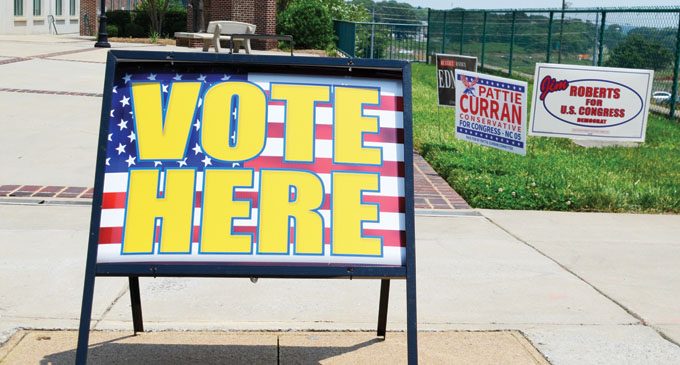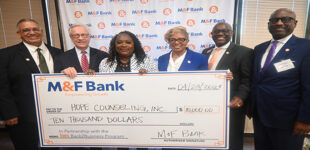N. C. elections board back in court in power struggle

By GARY D. ROBERTSON
Associated Press
RALEIGH, N.C. —The repeatedly altered composition of North Carolina’s elections board returned to court as a proxy for the lengthy power struggle between Democratic Gov. Roy Cooper and the Republican-dominated legislature.
A panel of three trial judges listened for over three hours on Thursday, July 26, but didn’t immediately rule on the request by Cooper’s lawyers to throw out a third iteration of a combined elections and ethics board. Structures of two earlier versions created by GOP lawmakers previously have been declared unconstitutional.
GOP lawmakers and Cooper have been embroiled in litigation and political disputes since Cooper was elected governor in 2016. Lawmakers have passed several bills that eroded Cooper’s powers. The board is important because its members can approve early-voting sites that could affect election turnout. They can also assess campaign finance penalties and determine ethics law violations.
Republicans argue their latest attempt – the current nine-member board chosen by Cooper, with four Democrats, four Republicans and a ninth who can’t be a member of either party – passes constitutional muster.
But Jim Phillips, a Cooper lawyer, told the judges the new board structure suffers the same flaws as the other versions because it still usurps the governor’s constitutional duty to ensure state election laws are faithfully executed. While Cooper appoints the entire board, Phillips said, he only has strong influence over the four Democratic choices, picked from a list provided by the state Democratic Party.
“The governor, as the head of the executive branch, must have control over the views and priorities of a majority of the board,” Phillips said.
Cooper also remains hamstrung because the legislature decided the board’s executive director, originally appointed under Republican Gov. Pat McCrory, would stay on the job until next spring, according to Phillips. And Republican state and county election members are the designated chairmen during years when there are races for president, governor or other major statewide offices.
Republicans began altering the board’s makeup days after Cooper’s narrow victory over McCrory was finalized in December 2016. Cooper sued legislative leaders right away, and the same three judges hearing Thursday’s case – Judges Jesse Caldwell, Todd Burke (of Winston-Salem) and Jeffery Foster – threw out the first altered board as unconstitutional.
Lawmakers tried again by creating another eight-member board – appointed by Cooper but evenly divided among Democrats and Republicans. A closely divided state Supreme Court last January ruled that version was unlawful, too, deciding the board’s composition, when combined with other alterations, left Cooper unable to fulfill his duties to ensure election laws were followed.
Attorneys for the GOP lawyers contend the latest board version, approved by lawmakers in February, complies with the Supreme Court’s ruling by balancing authority of the governor with the independence a quasi-judicial panel like an elections board needs.
“We disagree you can boil this case down to the simple matter of the governor doesn’t have a majority and it’s unconstitutional,” said Noah Huffstetler, a Republican attorney, while asking that Cooper’s lawsuit be dismissed.
The three-judge panel’s decision is likely to be appealed to the state Supreme Court. But the litigation could become moot – a proposed constitutional amendment that lawmakers decided to put before voters in November would shift the board’s appointments from the governor to the legislature.
Phillips mentioned the amendment and other election laws that Republicans have passed since taking charge of the legislature in 2011. Legislative and congressional district maps that contained racial gerrymanders and a measure restricting early-voting and requiring photo identification to vote in person were struck down in court.
The Republican lawmakers “are not interested in an elections board or an elections process that is independent. They are interested in one that is independent of the governor,” Phillips said.
Huffstetler disagreed and said other legislation doesn’t matter in determining whether the current election board law is constitutional. But he acknowledged what’s being proposed by Republicans in the constitutional amendment this November “goes way beyond” what the current law does.















